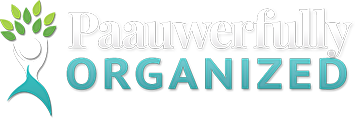What keeps you from taking better care of yourself? Is it a lack of time, money, motivation? Many of us would answer “yes” to all three, but the fact of the matter is, it’s possible to integrate more personal care into your daily routine with a little advanced planning, and a touch of willpower. Keep reading to learn some creative approaches to self-care that won’t hurt your budget.
Make Time
It’s not just that we tend to make excuses for not embracing self-care practices like exercising – it’s that we don’t prioritize these activities. Sure, it can be a hassle to get up an hour early to hit the treadmill or to fight traffic after work to get to the gym, but that’s only until it becomes part of your ingrained routine. Once you establish a healthy habit, you not only start to look and feel better, but it becomes part of your everyday life. You may even find yourself looking forward to this “me” time! If time is really at a premium, keep your commitment short to start – a 15-minute walk around the neighborhood is unlikely to throw your schedule into disarray.
Be Resourceful
While a group exercise class or program might keep you focused and on-task, there is often an expense involved, and some classes are not yet offered because of the need for social distancing. Look for low and no-cost outdoor options this summer, including community recreation centers that offer low-entry pricing. Also consider what you can do for free – for example, download a trail finder app to locate hiking or walking trails in your area. You can even work out at home – a great option for seniors and parents of young kids. Stretching, chair yoga and even workout video games through systems like the Nintendo Wii can all help you get your heart rate up!
Eat Well
According to Cleveland Clinic, there’s a psychology behind what we eat and how we feel. While it’s easy to resort to quick grab-and-go meals when time is tight, this eating style will make you feel worse over the long haul. Get into a habit of buying whole foods and cooking at home. You can make healthy eating less time-consuming by ordering groceries online and meal prepping one day a week. If time and budget permits, you can make this part of self-care extra indulgent by trying out new gourmet recipes and involving family and friends in the process. Leftovers can make nutritious on-the-run lunches, freeing up even more time and money.
Get a Hobby
Hobbies can get a bad rap. According to Hobbies for Health, rather than think of them as time-wasters, think of enjoyable pastimes as recharging periods. Whether it’s meditation, gardening, painting, or reading, taking a step back from the hustle of everyday life is a way to help you rejuvenate your mind and soul. You can actually come back to your business, your family, and your other responsibilities in a much better frame of mind when you take time out to care for yourself.
Get Restful Sleep
Sleep plays an important role in how we look, feel, behave, and even think. Lack of adequate sleep can result in a host of problems, including lack of focus and irritability, and can even make you more susceptible to serious illness. Practice self-care by buying comfortable bedding, enjoying a cup of herbal tea, turning off electronic and screen devices at least one hour before bed, and using a diffuser with lavender essential oils to help you wind down for the night. This bedtime ritual takes little time, money or effort, but is a way to show yourself some love and tender care.
You may benefit from being evaluated for sleep apnea, a potentially serious sleep disorder in which breathing repeatedly stops and starts while you’re sleeping. If you snore loudly and feel tired even after a full night’s sleep, you might have sleep apnea. According to the American Academy of Sleep Medicine, “public health and safety are threatened by the increasing prevalence of obstructive sleep apnea, which now afflicts at least 25 million adults in the U.S., according to the National Healthy Sleep Awareness Project. Several new studies highlight the destructive nature of obstructive sleep apnea, a chronic disease that increases the risk of high blood pressure, heart disease, Type 2 diabetes, stroke, and depression.”
Heart attacks took the lives of my father at age the age of 47 and my brother at the age of 56, so I’m accutely aware of my genetic predisposition to heart disease and the importance of managing my blood pressure. In an effort to get my elevated blood pressure under control, my primary care doctor suggested that I be evaluated for sleep apnea. Last month she referred me to a sleep medicine clinic, and I was set up with a home sleep study. I was recently quite surprised to learn the results: I have moderate sleep apnea. I am in the process of determining the best course of treatment. Ignoring this diagnosis is not an option for me.
Since my diagnosis, I have been educating myself about sleep apnea. I was shocked to learn that one billion people worldwide suffer from it, with 80% of cases going undiagnosed. According to American Academy of Sleep Medicine President Dr. Timothy Morgenthaler, “Obstructive sleep apnea is destroying the health of millions of Americans, and the problem has only gotten worse over the last two decades. The effective treatment of sleep apnea is one of the keys to success as our nation attempts to reduce health care spending and improve chronic disease management.”
In an effort to educate the public about the sleep apnea crisis, a documentary is in the making, called Out of Breath. Watch this four-minute excerpt to learn more about this disorder.
On a Personal Note
For those of you who have subscribed to my blog for years, you may be aware that I have not published one since last July. I decided to publish this blog today – May 11 — in gratitude for the 62 years I have been gifted on this planet. I am so very grateful that my family and I have made it through this past year with our health and emotional well-being intact.

Last May, I celebrated my birthday in a safety bubble at home with my husband. After spending two months in pandemic lockdown, I got to have my first brief “six-foot-distance” visit with our daughter on our front porch to celebrate Mother’s Day and my birthday. A few weeks later I was so happy that we were able to expand our safety bubble enough so I could start caring for our granddaughter, Violet, when her parents went back to work. It felt like emotional torture to live so close and not be able to see them.
My new life role as a grandmother has required a significant shift in focus and priorities, which I’ve gladly embraced. Violet is now 19 months old and I continue to cherish every moment I get to spend with her!
Support Offer from Kathy
In our fast-paced world, too often we give priority to everything and everyone but ourselves. Ultimately, giving too much of ourselves takes a toll. This past year has required a lot of extra effort from so many of us. Now it’s time to devote some attention to caring for YOU. You deserve it!
 I have blocked out some time dedicated to providing free phone coaching to those who seek support in finding greater balance in your life as you work your way back into a “new normal” in your home, family life, and work. It’s on my heart to provide high virtual touch support to those who reach out for it. Together we can create a productive and meaningful blueprint for your life moving forward. To learn about my work as a certified coach, click here. Then let’s schedule a time to connect.
I have blocked out some time dedicated to providing free phone coaching to those who seek support in finding greater balance in your life as you work your way back into a “new normal” in your home, family life, and work. It’s on my heart to provide high virtual touch support to those who reach out for it. Together we can create a productive and meaningful blueprint for your life moving forward. To learn about my work as a certified coach, click here. Then let’s schedule a time to connect.
Additional Resources
- Blog: Is Negativity Bias Running Your Life?
- Blog: Change Your Thoughts, Change Your Life!
- Blog: Four Essential Building Blocks for Practicing Self-Care
- Blog: Befriending Difficult Emotions in a Time of Crisis
- Free Webinar: Managing Priorities
- Guide: Cultivating Happiness: Living Life on Your Terms
- Guide: Reclaim Your Power: How to Deal with Toxic People in Your Life & Business
- Guide: My Gratitude Journal










